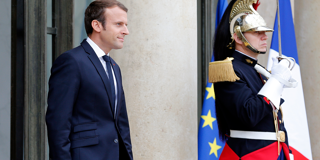
Transparency’s Diminishing Returns
Accountability and transparency requirements have improved democratic practices in many Western countries in recent decades. But defending personal privacy is still a valid objective, and maintaining secrecy in some domains, such as national security, diplomacy, and human rights, is essential.
PARIS – Transparency was a central theme in the 2017 French presidential election. Even before François Fillon of the conservative Les Républicains was reported to have paid his wife public funds for unperformed tasks, the eventual victor, Emmanuel Macron, had made transparency a central issue of his campaign.